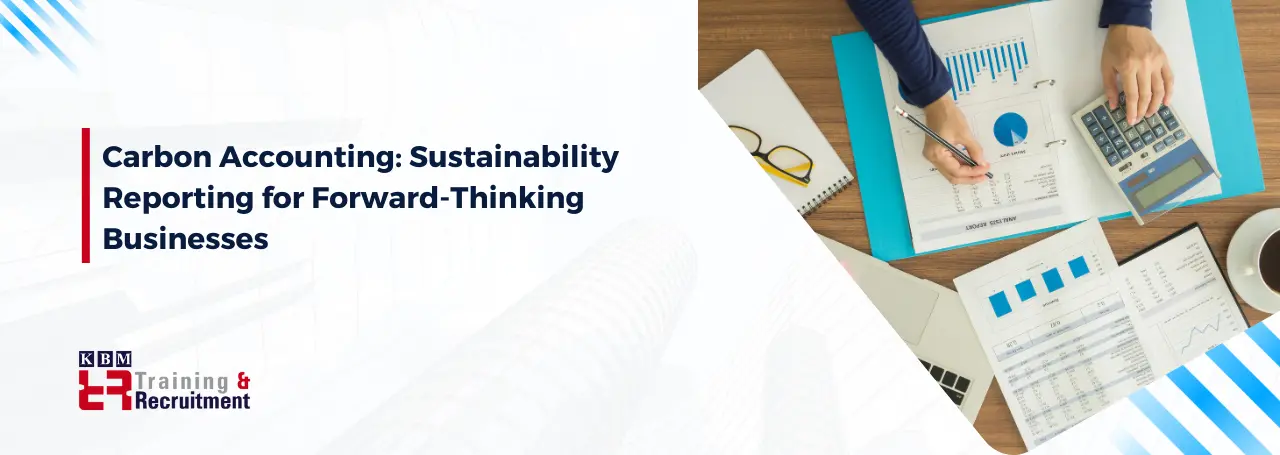In this age of heightened environmental awareness and corporate social responsibility, carbon accounting and sustainability reporting have emerged as critical components of modern business practices.
This blog delves into the growing importance of carbon accounting and how businesses can integrate sustainability reporting into their financial practices.
The Climate Challenge and the Role of Businesses
The climate challenge is no longer a distant concern; it's a reality businesses must grapple with. Carbon emissions, deforestation, and other unsustainable practices have led to environmental degradation, and companies are under increasing pressure to address their environmental impact.
Climate change isn't just an environmental issue; it's a financial one. Extreme weather events, supply chain disruptions, and shifting consumer preferences are all linked to environmental changes. Businesses that fail to adapt to these shifts risk financial losses and impacts on their reputation.
What is Carbon Accounting?
Carbon accounting, also known as carbon footprinting, is the practice of quantifying the greenhouse gas emissions associated with a company's operations. This includes emissions from manufacturing, transportation, energy use, and more. By understanding their carbon footprint, companies can identify zones where emissions can be reduced and operations more sustainable.
The Importance of Carbon Accounting
- Cost Savings: Reducing carbon emissions often leads to cost savings. Energy-efficient practices, streamlined transportation, and waste reduction measures can significantly cut expenses.
- Regulatory Compliance: Many regions are implementing regulations related to carbon emissions. Understanding and reducing emissions is crucial to staying in compliance with these laws.
- Competitive Advantage: Companies that demonstrate a commitment to sustainability often enjoy a competitive advantage. Sustainability is a unique selling point for customers seeking eco-friendly products and services.
- Risk Mitigation: As climate change accelerates, companies face more environmental risks. Understanding the carbon footprint helps mitigate these risks and ensures business continuity.
- Investor Relations: Investors are paying close attention to environmental and social performance. Sustainable practices can attract investment and provide a strong return on investment.
Sustainability Reporting: The Bigger Picture
Sustainability reporting is a broader concept that encompasses carbon accounting. It involves communicating a company's sustainability performance and impacts transparently to stakeholders, including employees, customers, investors, and the public. Sustainability reports cover various topics, including environmental, social, and governance (ESG) factors.
Key Elements of Sustainability Reporting
- Environmental Performance: This includes data from carbon accounting, as well as information on waste management, water use, and other environmental factors.
- Social Responsibility: Companies report on their relationships with employees, local communities, and society. This may include diversity and inclusion initiatives, labour practices, and charitable activities.
- Governance: Governance aspects related to the company's sustainability efforts, such as board oversight, executive compensation linked to sustainability goals, and mechanisms for stakeholder engagement.
Integrating Sustainability Reporting into Financial Practices
- Data Collection: To create a comprehensive sustainability report, businesses must collect relevant data. Carbon accounting data, which quantifies emissions, forms a crucial part of this dataset.
- Report Design: Sustainability reports should be well-designed, engaging, and understandable. Consider utilizing infographics and visuals to help convey complex information.
- Transparency: Transparency is a cornerstone of sustainability reporting. Companies should disclose both successes and challenges. Honest reporting builds trust with stakeholders.
- Goal Setting: To improve sustainability, companies often set targets based on their sustainability data. These goals can be financial, environmental, or social and must be specific, measurable, achievable, relevant, and time-bound (SMART).
- Integration with Financial Reporting: Integrating sustainability reporting with financial reporting strongly signals that sustainability is integral to business operations. The combination of financial and sustainability performance data provides a comprehensive view of a company's health.
Conclusion
Carbon accounting and sustainability reporting are not just trends; they are integral to the future of business. The evidence is clear: companies that embrace sustainability outperform their peers. The importance of carbon accounting and sustainability reporting cannot be overstated; they are tools for mitigating risks, creating cost savings, attracting investment, and building a better future for all. As businesses navigate a rapidly changing world, sustainability is no longer a choice; it's an imperative.






















